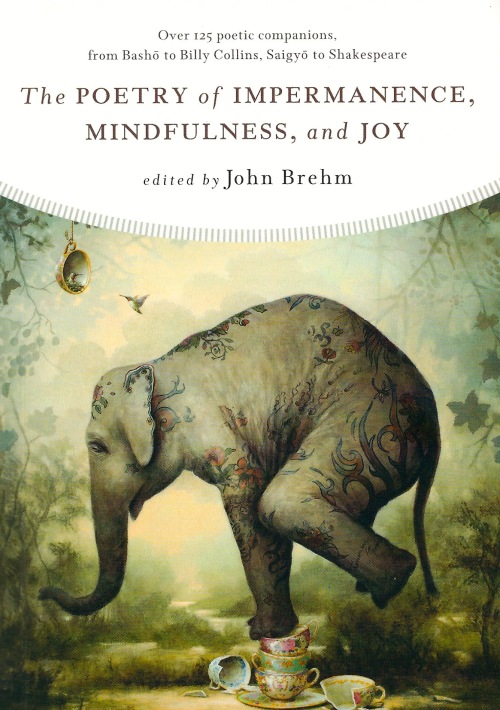John Brehm, The Poetry of Impermanence, Mindfulness, and Joy
When asked by a student if there was a secret to writing haiku, Buson replied, “Yes, use the commonplace to escape the commonplace.” When the student asked how, he said, “Read Chinese poetry.” 203
I originally bought this book, thinking it would be useful as a supplementary text for a gatha writing and reading class. Having finished it I don’t think so, but it has introduced me to some good poems for sharing. The compiler’s thesis: mindfulness of impermanence leads to joy.
Among the poems I will pass on—
Ellen Bass, If You Knew
Chuang Tzu, The Joy of Fishes
Jack Gilbert, A Brief for the Defense
Hanshan, They Laugh at Me, ‘Hey Farm Boy!’
Kobayashi Issa, This World of Dew
Kobayashi Issa, Under cherry trees
Jack Kerouac, In my medecine cabinet
Pablo Neruda, Horses … Ode to My Socks
Ryokan, First Days of Spring—the Sky
Ryokan, Nothing satisfies some appetites
Ikkyu Sojun, After ten years in the red-light district
William Stafford, It’s All Right
Szymborska, Miracle Fair
Su Tung-p’o, With Mao and Fang, Visiting Bright Insight Monastery
Walt Whitman, When I Heard the Learn’d Astronomer
WC Williams, The Widow’s Lament in Springtime
Among the poets to read or reread—
Basho
Elizabeth Bishop
Yosa Buson
Billy Collins
Robert Frost
Hirshfield
Yusef Komunyakaa
Levertov
Li Po
Milosz
Marianne Moore
O’Hara
Ostriker
Padgett
Pessoa
Po Chu-i
Pound
Prevert
Rexroth
Saigyo
Shakespeare
Tracy K. Smith
Gary Snyder
Ikkyu Sojun
William Stafford
Wei Ying-Wu
WC Williams
Wordsworth
How to approach a poem—
With “presence, alertness, patience, care”
